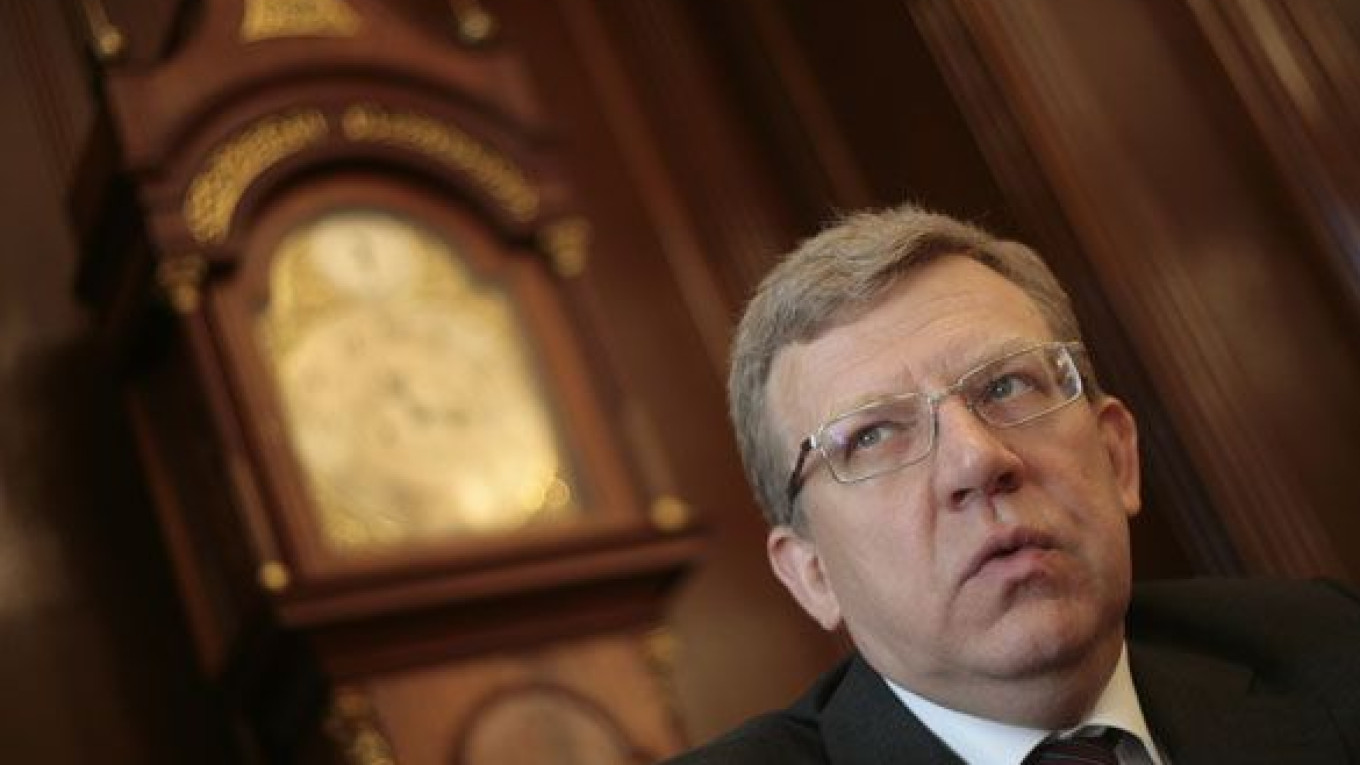The Cabinet on Thursday backed a plan to pack all federal spending into long-term programs in an effort to drastically cut the costs of running the country after it exhausts cash reserves inherited from years of an oil boom.
Government officials, however, were tight-lipped about exactly how the new way of managing federal outlays would work when it is first applied to the budget in 2012.
“It's about moving to state programs as a key tool of long-term planning,” Finance Minister Alexei Kudrin said about the plan after the Cabinet meeting.
“That's how we are moving — in a revolutionary way, in fact — to an analysis of all the options available for the government to achieve specific goals,” he said.
Next year's budget will not consist of only long-term programs because officials have yet to determine what programs the country needs and how to put them together, Kudrin said.
Budget spending for 2012 is expected to slide to 9.7 trillion rubles ($321 billion) from this year's projected 9.9 trillion rubles.
The plan, which has been in the works since at least February, will allow the government to revise its spending commitments, “mercilessly cut out the expenses that are ineffective or of secondary importance” and look for the least expensive options, Prime Minister Vladimir Putin said last week.
The changes may represent a cover for reducing investment spending in the face of growing social payouts and a gaping budget deficit, said UralSib economist Vladimir Tikhomirov.
Nonbudgetary funds are used to pay compulsory medical insurance and pensions, among other things.
Tikhomirov also noted the vagueness of the plan. “There are many points of view but little clarity about how it will work in practice,” he said.
The cash pot saved from the record intake of oil export revenues, the Reserve Fund, will run out early next year at the latest, Kudrin said recently.
In an earlier effort to set more specific goals for federal spending, the Cabinet began drafting three-year budgets in 2007. That apparently proved insufficient.
“We have a lot of overlapping and parallel spending on the same targets,” Putin said in a speech at the State Duma last month.
What's more, the Education and Science Ministry has no influence over education expenses by the other agencies, while the Health and Social Development Ministry is in the same position in terms of health care, he said.
“Education and health care spending is spread throughout various ministries — quite a bunch of them — but the ministries that are in charge can't influence the policy of allocating and using the money,” Putin said.
By funneling all spending through federal programs, the Cabinet will tighten control over the fiscal flows and have a chance to redirect them where it sees them most needed, he said.
Tikhomirov suggested that the measure would mean that the Finance Ministry would enjoy greater scrutiny over expenses. The government now spends about 10 percent of the federal budget on long-term programs.
Setting off on an austerity campaign, the government may instead want to devote more attention toward developing competition among contractors that bid for various state projects, such as the construction of roads and bridges, said Peter Westin, chief economist at the Aton brokerage. Corruption also deflects revenues from the state coffers, because many businesses can't afford to pay both bribes and taxes, he said.
“There are other things that might be more pressing,” he said. “Bureaucrats tend to spend a lot of money on reforming themselves, which is characteristic not only of developing countries but also of Western economies.”
A Message from The Moscow Times:
Dear readers,
We are facing unprecedented challenges. Russia's Prosecutor General's Office has designated The Moscow Times as an "undesirable" organization, criminalizing our work and putting our staff at risk of prosecution. This follows our earlier unjust labeling as a "foreign agent."
These actions are direct attempts to silence independent journalism in Russia. The authorities claim our work "discredits the decisions of the Russian leadership." We see things differently: we strive to provide accurate, unbiased reporting on Russia.
We, the journalists of The Moscow Times, refuse to be silenced. But to continue our work, we need your help.
Your support, no matter how small, makes a world of difference. If you can, please support us monthly starting from just $2. It's quick to set up, and every contribution makes a significant impact.
By supporting The Moscow Times, you're defending open, independent journalism in the face of repression. Thank you for standing with us.
Remind me later.


